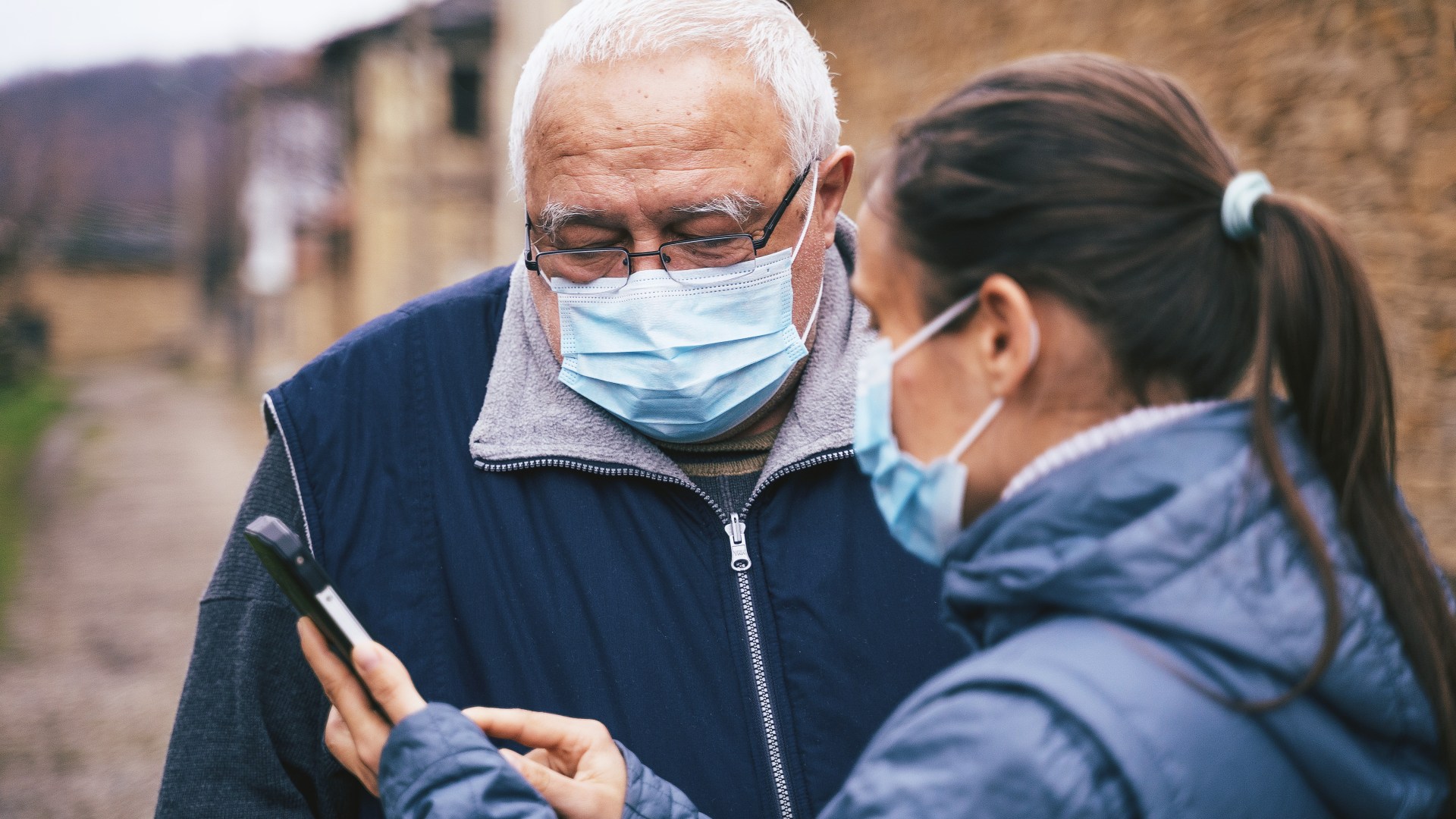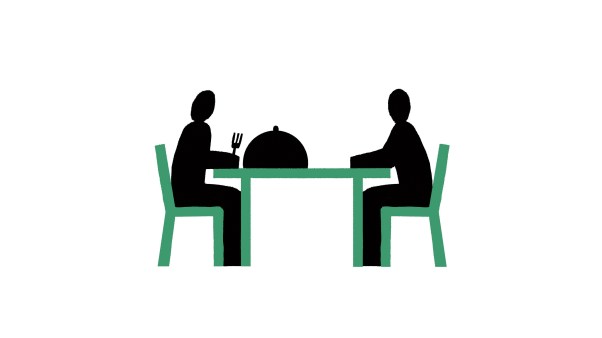When Michelle Brock’s grandmother passed away in early April, it wasn’t due to COVID-19 complications. But the global pandemic kept her family from filling her hospital room with loving presence the way they longed to.
“I wasn’t able to travel back to Florida to where my grandparents live, and it was a really hard time knowing that even my grandpa couldn’t be there,” Brock said.
This desire to prevent anyone else from feeling alone in their final moments prompted Brock to join a COVID-19 hackathon hosted by FaithTech, a platform focused on bridging the gap between faith and technology.
Though Brock is a graphic designer and documentary filmmaker who doesn’t consider herself tech-savvy, the hackathon connected her with a team whose skills complemented hers. Together, they dreamed up a solution to the predicament Brock and so many others had encountered during the pandemic.
The result of their teamwork was Sound of Your Love, a service that collects voice recordings from friends and family that can be played with a single tap, which is easier than accessing voicemail or arranging FaceTime calls.
“Even if you get to the point in your illness where you’re too weak to hold a screen up or have a conversation, we still wanted there to be a really easy way for people to leave a message,” Brock explained.
With Sound of Your Love, friends and family can dial in and leave a voice message that will be looped into a “soundtrack of love.” Its interface makes it simple for caretakers or medical professionals to hit play one time rather than navigate individual recordings or calls from loved ones.
While it’s a simple solution, it represents just one way that Christians are combining compassion and technological know-how to address the unique challenges brought on by the coronavirus. Rather than using business acumen to fatten their own wallets in the midst of the crisis—as currently some titans of industry are doing—a few Christians are instead thinking like entrepreneurs to provide services to others at little or no cost.
Beyond the hackathon, which generated a dozen winners and 55 projects to connect neighbors, the elderly, health care workers, pastors, and volunteers, Christians are starting grassroots projects to meet needs from a distance.
Christian author and speaker Jefferson Bethke, who has half a million followers on Facebook, created a public spreadsheet at the beginning of the pandemic to connect followers in need with financial gifts from strangers.
The project ended up helping over 700 people and drew in fellow leaders to get involved with creating a new platform. Now Bethke—in partnership with activist Christine Caine, author Ann Voskamp, photographer Esther Havens, and entrepreneur Jessica Kim—has evolved the initiative into Show Up Now, a website, app, and social campaign that encourages peer-to-peer generosity just like the original spreadsheet did, but with an added layer of prayer and outreach. Since launching, the Show Up Now website has fielded 1,157 requests for financial help and a few hundred requests for prayer.
“A lot of times in pandemic or crisis moments, the world operates out of scarcity,” Bethke said. “But Christians are meant to operate out of abundance.”
The movement taps into a wider trend of people using peer-to-peer fundraising to get their needs met in this moment of economic distress. Popular crowdfunding site GoFundMe is in more demand now than it’s ever been in its 10-year history, with coronavirus-related campaigns on the site raising over $60 million at the end of March. Though it offers an imperfect answer to complex problems, crowdfunding remains a popular option for people who need help immediately and can’t wait for more systemic solutions to emerge.
In addition to a financial component, Show Up Now encourages other forms of practical action by partnering with Ianacare (which stands for “I Am Not Alone Care,” but is pronounced like “eye on a care”), an app developed by Kim and her business partner Steven Lee. Originally launched last summer as a way to support family caregivers, Ianacare is designed to rally a social network to help check in emotionally, send gift cards or meals, volunteer to get groceries, provide pet care, and more.
The pandemic has made this mission feel all the more pressing, Kim said. In addition to the surge of medical needs around the virus, those offering care for non-coronavirus illnesses are still doing so. Ianacare has tailored some of its options for “caring without contact” responses.
“COVID-19 has increased the demand for care at home, because we cannot go into the hospital,” she said. “A lot of organizations and nonprofits are no longer operating. So people who are caregiving need help, but their resources have become even more limited. That’s where friends and family need to really show up. Because we are the only option right now for people who are caregiving.”
Float Me Through is another platform connecting people who have pandemic-induced financial needs with those willing to give a little spare cash.
Put together by a team at Useful Group, a marketing and advertising agency that frequently works with Christian publishers, Float Me Through was born from a small coalition of people wanting to do more to help those around them. According to chief creative officer Nick Rynerson, the agency was “lucky” to escape the financial hardships hitting many other small businesses. And though the company took on some pro bono work for nonprofits addressing the crisis, Rynerson and his coworkers wanted to do more.
“We almost immediately started thinking, ‘What can we do that would actually be helpful to other people?’” Rynerson said.
Though the government and nonprofits have provided some avenues for financial relief, Rynerson loved the idea of a no-strings-attached form of giving that would be more immediate and personal. His first thought was like Bethke’s: create a simple Google form where people with needs could ask for help and people who wanted to help could sign up to donate. It soon evolved into a slightly more sophisticated website where people could enter their needs in dollar amounts, with the option to add comments, and they would be matched in the back end with someone willing to help.
“We just wanted to make it so that if people needed help, they could get help without red tape,” he said. “And if somebody wanted to help another person but didn’t know where to start or everybody in their network was doing okay, it would be a place where they could jump in and help people.”
For now, the site is limited to Illinois residents to keep the initiative local and encourage neighbors caring for neighbors. But if there’s enough interest from other locations, the Useful Group team could create sister sites that accomplish the same function in other places, Rynerson said. He’s not invested in whether the project lasts a few weeks or a few years—he just hopes it facilitates generosity in new ways.
“A lot of people who have resources aren’t super used to direct giving,” he explained. “If this spurs them to help people they know outside the platform better and then they never use the platform again, great.”
These sites and apps might look like straightforward tech solutions to coronavirus-created problems. But they’re all driven more by a desire to connect people to one another than they are by a propensity for slick bells and whistles.
And the faith and empathy driving the people who created them provide useful insight for church leaders or anyone looking for creative ways to serve their communities in a time of crisis.
From Bethke’s perspective, the key is collaboration. He highlights his experience working with a team to come up with creative solutions as more meaningful than what he might have done on his own. Brock believes Christians have a unique call to be a “non-anxious presence” in the context of a world fighting panic. And Kim thinks getting as close as possible to the person you’re trying to serve is the best way to make sure any solutions you offer actually address the most pressing pain.
Though no person will balance all of this perfectly, Rynerson believes that Christians have been prepared for moments just like this one to serve and love a hurting world.
“As a faith community, both liberal and conservative, we’ve been talking about these things for 2,000 years—what it means to love your neighbor and to sacrifice for them,” he said. “I think the church can be champions of the call to love each other and to love our communities in this unique time.”











